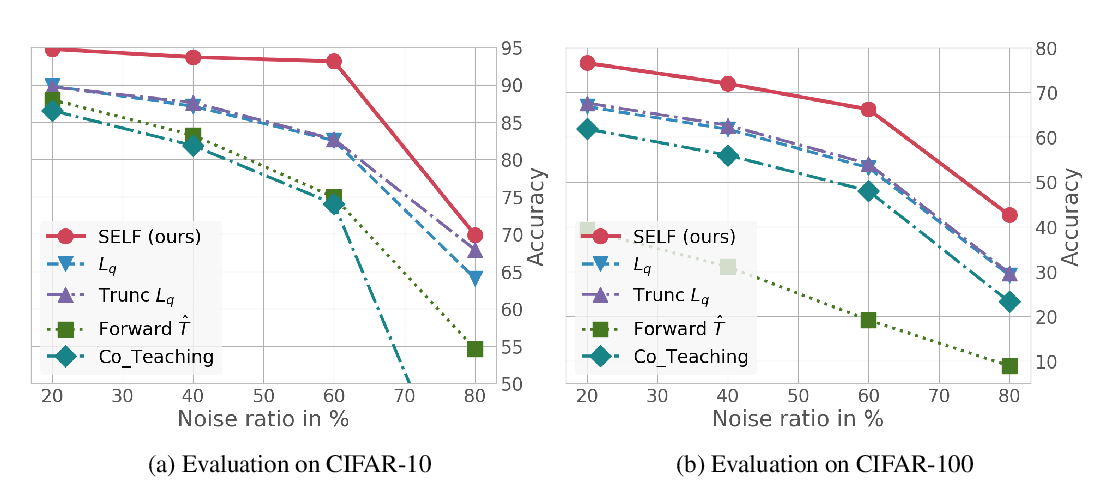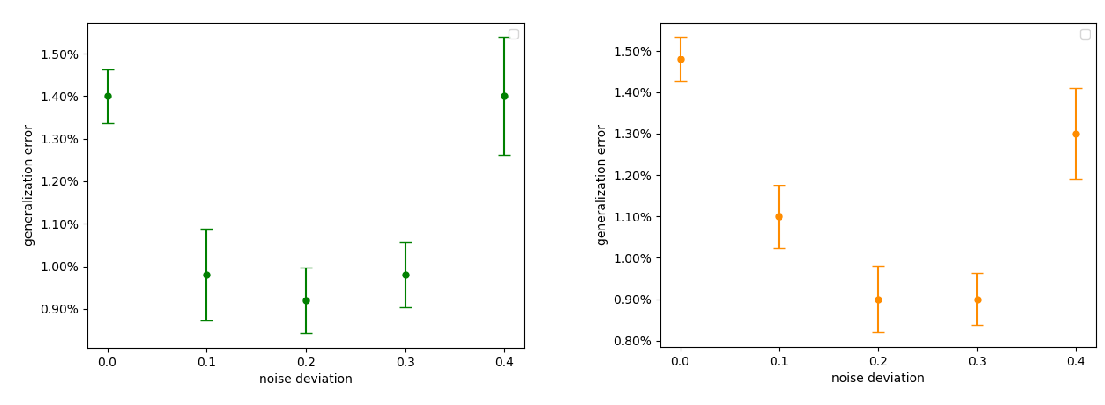Abstract:
Over-parameterized deep neural networks trained by simple first-order methods are known to be able to fit any labeling of data. Such over-fitting ability hinders generalization when mislabeled training examples are present. On the other hand, simple regularization methods like early-stopping can often achieve highly nontrivial performance on clean test data in these scenarios, a phenomenon not theoretically understood. This paper proposes and analyzes two simple and intuitive regularization methods: (i) regularization by the distance between the network parameters to initialization, and (ii) adding a trainable auxiliary variable to the network output for each training example. Theoretically, we prove that gradient descent training with either of these two methods leads to a generalization guarantee on the clean data distribution despite being trained using noisy labels. Our generalization analysis relies on the connection between wide neural network and neural tangent kernel (NTK). The generalization bound is independent of the network size, and is comparable to the bound one can get when there is no label noise. Experimental results verify the effectiveness of these methods on noisily labeled datasets.


